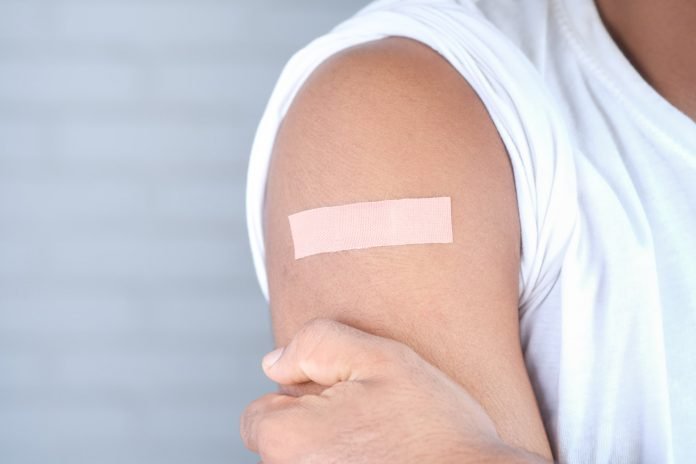
While most parents are good at keeping track of vaccines kids need to stay healthy, many people don’t realize there are immunizations important to keeping adults heart-healthy, as well.
The American Heart Association urges all adults, especially those already with a history of heart disease or stroke, to take a look at their immunization status, and stay up-to-date on preventive vaccines, particularly for flu and COVID-19.
Influenza/Flu—Flu season begins in early fall and extends into early spring.
Many people may experience just a few days of aches and chills, but the flu can be deadly for some, including the very young, people who are older and those with chronic health conditions like heart disease, stroke and diabetes.
There has been some research linking flu infection to cardiovascular disease (CVD). Getting a flu shot can not only prevent the flu, it may also reduce the risk of have a heart attack or stroke.
A study published earlier this year in the journal Stroke found that among a group of people hospitalized for various reasons, those who experienced a flu-like illness within a month of their hospitalization were 38% more likely to have a stroke, compared to those who didn’t have a similar illness.
Receiving a flu vaccine within the year prior to hospitalization lowered a person’s stroke risk to 11%.
People over the age of 50 who were hospitalized and those in nursing homes who were at high risk for influenza had lower rates of death, heart attack, mini-stroke and cardiac arrest if they were vaccinated against flu, according to a study presented at the American Heart Association’s Basic Cardiovascular Sciences 2020 meeting.
COVID-19—The American Heart Association established the COVID-19 Cardiovascular Disease Registry at the onset of the pandemic and the registry has produced a number of studies reporting that people with or at risk for cardiovascular disease were more likely to become infected with and die from COVID-19.
Additionally, the research has found many people are experiencing new heart and vascular disease after they get COVID-19.
A study from the registry and published earlier this month in the journal Circulation: Arrhythmia and Electrophysiology found new-onset atrial fibrillation (AFib) in 1 in 20 patients hospitalized with COVID-19.
Research from the registry presented at the American Heart Association’s International Stroke Conference earlier this year found that people hospitalized with COVID-19 had a higher risk of stroke, compared with people who had similar infectious conditions such as influenza or sepsis.
A study published in the Journal of the American Heart Association in February 2021 found that obesity, high blood pressure, diabetes and heart failure—all risk factors related to CVD—were four of the top risks for COVID-19 complications.
While flu and COVID-19 vaccines are of the utmost importance, there are also several other immunizations that can help keep people heart-healthy.
The pneumococcal vaccination protects against a common cause of severe pneumonia and is especially important in people 65 and older and others with certain underlying medical conditions.
This type of pneumonia can be deadly, especially for people already at high risk for health complications, including CVD.
One shot is usually good for several years, although depending on how old you are when you get your first shot, you may need a second one later.
Shingles, a viral infection caused by the chickenpox virus, has been linked to an increased risk of stroke.
More than 99% of people aged 40 or older in the United States may carry the dormant chickenpox virus, also known as the varicella-zoster virus, and not even realize it.
A study presented at the American Heart Association’s International Stroke Conference in 2021 found that the shingles vaccine may reduce stroke risk by about 16% in older adults.
There is also research that links human papillomavirus, or HPV, a common sexually transmitted infection, to cardiovascular disease.
A 2019 study published in the journal Circulation Research found that Korean women infected with high-risk strains of HPV were 22% more likely to develop heart disease or have a stroke than women not infected with the virus.
While this vaccine is not currently among those recommended by the Association for cardiovascular benefits, the research points to growing evidence about the connections between viral infections and heart disease.
If you care about heart health, please read studies about the cause of heart damage in COVID-19, and this drug can be a low-cost heart failure treatment.
For more information about heart health, please see recent studies about how vitamin D delivers on heart health, and results showing this diabetes drug could revolutionize heart failure treatment.



